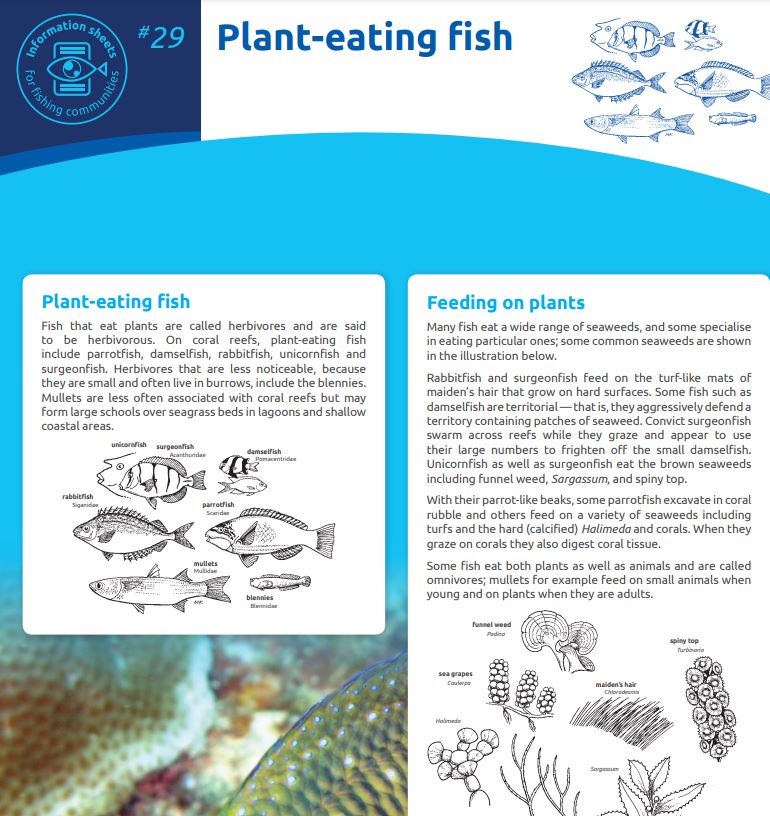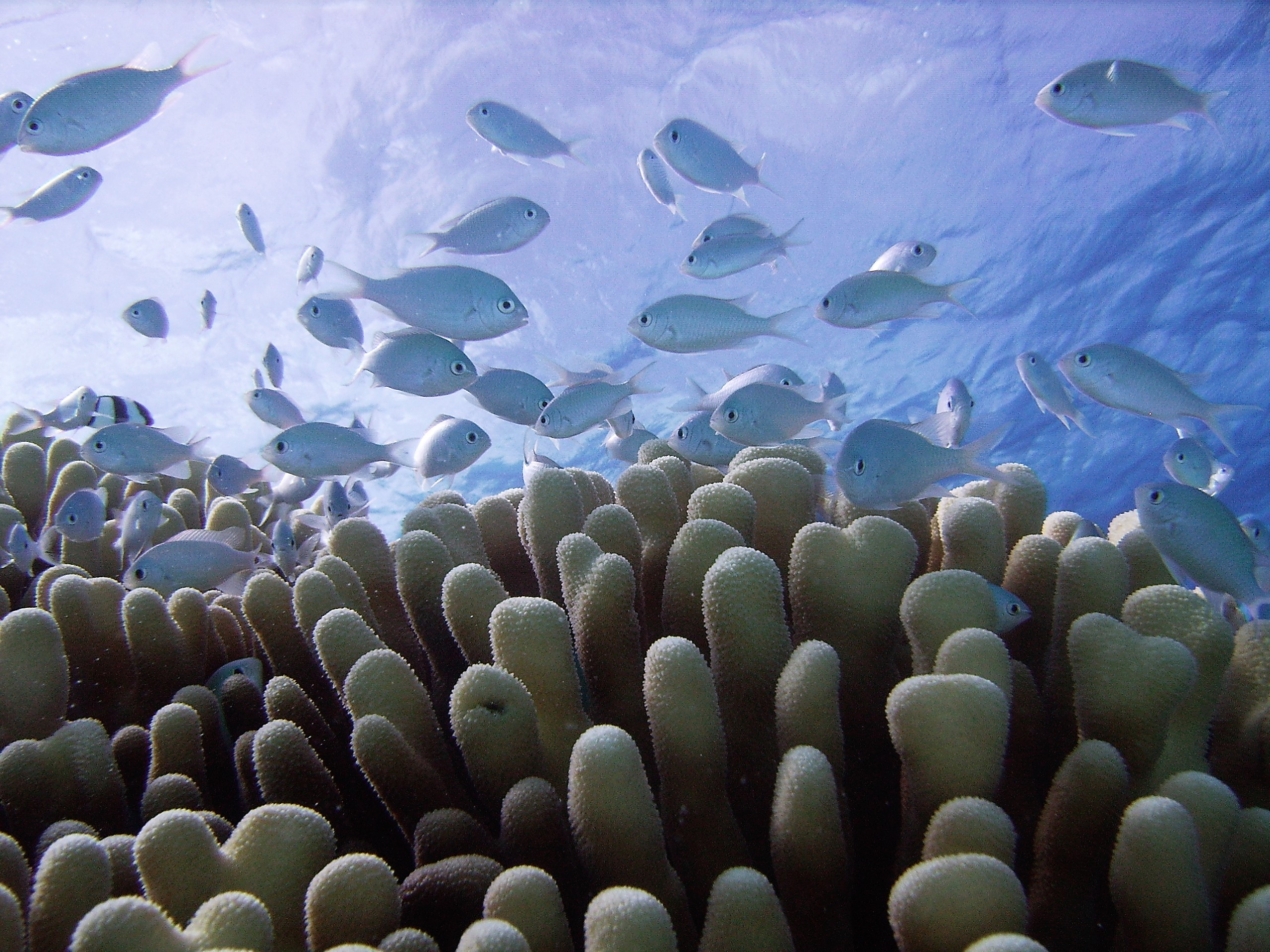Image: © Pierre Boblin, SPC
To gain access to full information on plant-eating fish, download the information sheet produced by the LMMA Network and SPC.
Plant-eating fish
Fish that eat plants are called herbivores and are said to be herbivorous. On coral reefs, plant-eating fish include parrotfish, damselfish, rabbitfish, unicorn fish and surgeonfish. Ones that are less noticeable, because they are small and often live in burrows, include the blennies. Mullets are less associated with coral reefs but may form large schools over seagrass beds in lagoons and shallow coastal areas.
Management measures and options
With assistance and advice from local government authorities, NGOs or regional organizations, community members could discuss the following questions.
What is the health of nearby coral reefs?
A reef that has extensive stands of large seaweeds may be at risk – that is, it may be in the process of shifting from a reef of corals to a reef of plants. Healthy coral reefs have only small patches of turf and a few large seaweeds.
If the reef is dominated by large seaweeds, what are the causes?
Although increased nutrients, say from human or animal sewage, may be partly responsible, the most likely cause of excessive plant growth is the over-fishing of plant-eating fish.
Have the numbers of key herbivorous species changed?
Local fishers will know whether or not the time needed to catch, say, a basket of parrotfish or a string of surgeonfish has changed. If it takes longer to catch a particular species than it did in the past, it is likely that numbers have been decreasing.
To protect coral reefs, management activities should focus on protecting plant-eating fish. The following are some key actions.
Reduce fishing on plant-eating fish: Actions could include banning the use of spears to catch parrotfish and surgeonfish at night. The use of SCUBA for spear-fishing should be banned at all times.
Ban, or at least reduce, fishing on spawning fish: Many plant-eating fish, including surgeonfish, parrotfish and rabbitfish form spawning aggregations. In these species it is important to ban, or at least reduce, fishing on spawning fish.
Establish marine reserves: Marine reserves (or no-take areas) in which fishing is banned will allow the numbers of fish to increase. Grazing fish, particularly parrotfish, will increase the areas available for corals to settle – such grazing in marine reserves has been found to double the numbers of corals settling on hard surfaces.
Having large numbers of different herbivores feeding on different seaweeds is essential for the health of coral reefs and assists what is called reef resilience - the ability of a reef to return to its initial condition after being badly affected by factors such as cyclones, coral bleaching events and outbreaks of crown-of-thorns. Without herbivores, algae will quickly dominate the space and coral communities may not recover.
Many fish eat a wide range of seaweeds and some specialise in eating particular ones.
Rabbitfish and surgeonfish feed on the turf-like mats of maiden’s hair that grow on hard surfaces. Some fish such as damselfish are territorial – that is, they aggressively defend a territory containing patches of seaweed. Convict surgeonfish swarm across reefs while they graze and appear to use their large numbers to frighten off the small damselfish. Unicorn fish as well as surgeonfish eat the brown seaweeds including funnel weed, Sargassum, and spiny top.
With their parrot-like beaks, some parrotfish excavate in coral rubble and others feed on a variety of seaweeds including turfs and the hard (calcified) Halimeda and corals. When they graze on corals they also digest coral tissue.
Some fish eat both plants as well as animals and are called omnivores; mullets for example feed on small animals when young and on plants when they are adults.
Plants are primary producers – that is, they create food directly from sunlight, carbon dioxide and nutrients in the water. Fish and other animals that eat plants become food for carnivorous or meat-eating fish such as snappers, groupers and trevallies. Plant-eating fish, therefore, provide an essential link between plants and the important and often larger food fish.
However, in addition to their importance in food chains, plant-eating fish are vital to the health and survival of coral reefs. As most plants grow much faster than corals they will quickly establish themselves on any bare surface. In the absence of plant-eating fish, seaweeds will
-
Occupy spaces where corals could have settled,
-
Outgrow corals and deprive them of essential sunlight, and,
-
Damage corals by scraping against them.
Coral reefs provide habitats and food for the marine life that fishing communities rely on for seafood. If seaweeds are allowed to replace corals, the reefs will not support the same variety of seafood species. This is happening in many places in the world and is usually caused when the numbers of plant-eating fish have been severely reduced by heavy fishing.
Related resources

To gain access to full information on plant-eating fish, download the information sheet.

